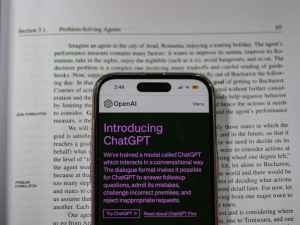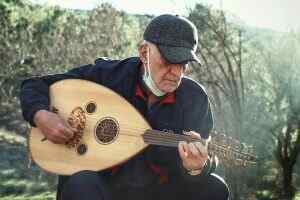The Fruit Cure: Navigating the Dichotomies of Wellness, Illness, and Healing
In her literary debut, “The Fruit Cure: The Story of Extreme Wellness Turned Sour,” Jacqueline Alnes embarks on a profound and introspective journey through the past and present of extreme wellness communities that thrive in the vast digital landscape of the internet. Interweaving memoir, narrative nonfiction, and historical investigation, Alnes delves into the depths of her own experiences with a mysterious neurological illness and the solace she sought within an online community advocating an extreme diet centered solely on fruit. As she meticulously dissects the moralization of food, parasocial relationships, ableism, and the inherent challenges of crafting an illness narrative that defies inherited myths about healing and cures, Alnes invites readers to embark on a transformative odyssey of self-discovery and collective reflection.
Confronting Memories, Recovering the Self
Revisiting the haunting memories of her neurological illness through the cathartic act of writing proved to be a complex and emotionally charged process for Alnes. In an attempt to shield herself from the lingering pain, she had suppressed these memories, tucking them away in the recesses of her mind as a means of self-preservation. However, as she embarked on this literary journey, she recognized the profound necessity of confronting these memories head-on, acknowledging their indelible impact on her self-perception, her physical embodiment, and the intricate web of her relationships. The writing process itself became an act of profound vulnerability, allowing Alnes to peel back the layers of her illness experience, acknowledging its profound impact on her sense of self, her body, and her relationships. Through this introspective exploration, she embarked on a path of healing, embracing the transformative power of vulnerability.
Challenging Illness Narratives, Embracing Nuance
Alnes’s personal encounters with illness narratives led her to question and challenge the prevailing cultural expectation of a fully healed ending, a pervasive narrative that often paints a simplistic and unrealistic picture of the healing process. She courageously resisted the pressure to conform to this narrative, choosing instead to navigate the complexities of her own healing journey, acknowledging the lingering effects of her illness while simultaneously seeking joy and meaning in her life. Her writing eloquently reflects a deep desire to disrupt the rigid dichotomies of good and bad, ill and healed, offering a more nuanced and realistic portrayal of healing, one that embraces the complexities of the human experience and acknowledges the spectrum of possibilities that exist between the extremes.
Navigating the Allure and Perils of Alternative Healing
With unwavering curiosity and an investigative eye, Alnes ventures into the captivating world of alternative healing practices, shedding light on the allure they hold for individuals who feel disillusioned and underserved by traditional healthcare systems. She astutely recognizes the sense of agency and validation that people can find within these spaces, acknowledging the potential benefits of self-care and alternative treatments. However, she also casts a critical eye on the lack of accountability and self-reflection among some wellness influencers, emphasizing the importance of recognizing the profound influence and power that they wield. Alnes’s exploration of this complex landscape serves as a clarion call for influencers to acknowledge the potential impact of their rhetoric on their followers’ health and well-being, underscoring the significance of responsible online engagement.
Food as a Moral Battleground
In her exploration of the moral dimensions of food choices, Alnes uncovers the intricate ways in which food has become a battleground for personal and collective reckoning. She draws compelling connections between the high-carb raw vegan movement and religious ideologies, suggesting that the emphasis on purity and control through food can have far-reaching and often harmful consequences, particularly for women. Alnes delves into the historical roots of thinness as an ideal, tracing its origins to racist and white supremacist ideologies, exposing the insidious ways in which these ideologies have shaped our collective understanding of health and beauty. Through her incisive analysis, Alnes challenges readers to critically examine the moral weight we place on food choices, inviting us to question the underlying assumptions and values that shape our dietary decisions.
Parasocial Relationships and the Responsibility of Influencers
Alnes delves into the intricate dynamics of parasocial relationships, those emotional connections that individuals form with online personalities, shedding light on the complex intersection of religiosity, morality, and extreme online food communities. She examines the ways in which influencers can wield their power and influence, questioning their responsibility to their followers’ health and well-being. Alnes emphasizes the urgent need for influencers to recognize the potential impact of their rhetoric, encouraging them to engage in responsible online engagement. She advocates for a more ethical and accountable approach to online interactions, one that prioritizes the well-being of individuals over personal gain or popularity.
Healing Beyond Dichotomies
Alnes boldly challenges the notion of healing as a binary state, a simplistic categorization that often fails to capture the complexities of the healing process. She argues for a more nuanced understanding of healing, one that embraces the gray areas, the contradictions, and the ongoing nature of the journey. Through her own healing journey, Alnes emphasizes the importance of rejecting rigid dichotomies and embracing a spectrum of experiences, acknowledging the limitations of our bodies and the ongoing nature of the healing process. This approach, she asserts, allows for a more realistic and sustainable path to healing, one that honors the complexities of the human experience.
Running: A Paradox of Healing and Self-Expression
In a poignant exploration of the paradoxical relationship between running and healing, Alnes draws parallels between her devotion to fruit and her passion for running. She reflects on the ways in which she used running as a weapon and a salve, punishing herself through the activity she once loved. Through her PhD research, she came to recognize the harmful narratives she had internalized about running and her body. She embarked on a journey to reclaim running as a source of joy and self-expression, rather than a means of self-punishment. Alnes’s journey serves as a testament to the power of reframing our relationship with exercise, transforming it from a source of pain into a source of empowerment and liberation.
The Fruit Cure as a Resource for Navigating Complex Challenges
With “The Fruit Cure,” Alnes hopes to offer a beacon of hope and a sense of community to individuals struggling with complex illness, disordered eating, and the pervasive influence of the internet. She aims to provide validation and support to those who feel isolated and alone in their struggles. By exploring the historical and cultural forces that shape our understanding of wellness, illness, and healing, Alnes empowers readers to question inherited narratives and embrace their own unique paths to self-discovery and healing. “The Fruit Cure” stands as a testament to the resilience of the human spirit, a testament to the power of storytelling, and an invaluable resource for navigating the complexities of the modern world.
As you embark on your own journey of healing and self-discovery, remember that there is no one-size-fits-all approach. Embrace the complexities of your own experience, challenge societal norms, and seek out support from trusted sources. You are not alone on this journey. Together, we can dismantle the dichotomies that divide us and create a more inclusive and compassionate world.




